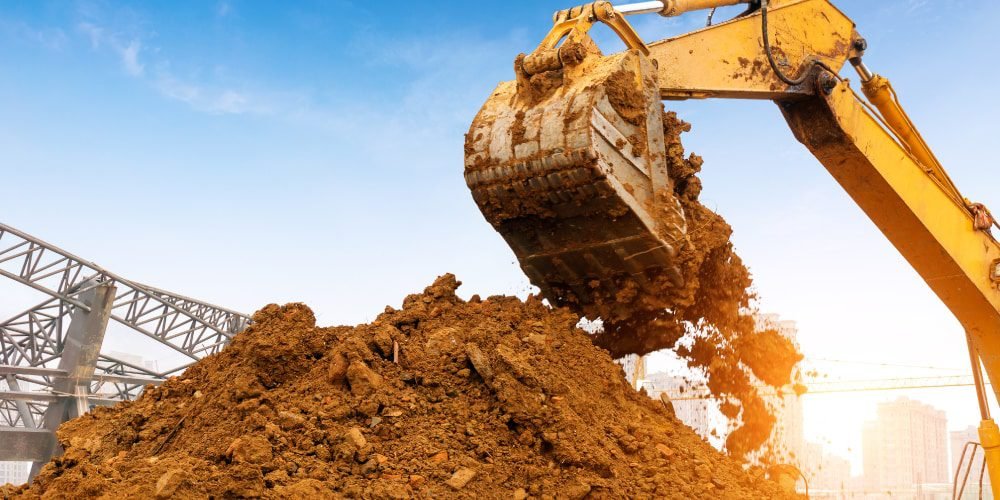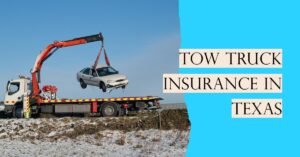
Excavation Insurance
Excavation Insurance: Every time you start building a new job, your business is exposed to additional risks. Opening the country opens you up to responsibilities and judgments. Your business needs insurance that meets the unique needs of an Excavator. You also need strong coverage to encapsulate all the services you offer.
What Is Excavation Insurance?
Excavation insurance is a form of coverage that includes liability in the event of an accident involving a third party or your property.
This can also be damaged outside the building, but also immaterial damage if this is a direct result of the construction project your company is working on.
While it may be tempting to accept the damage at face value, excavation companies need to consider the whole situation.
What Does Excavator Insurance Cover?
Excavation is a risky business, involving large teams, many workers, and what can be perceived as profitable destruction of other people’s property. Accidents are common in the earth-moving industry, which is why earth-moving companies must provide adequate protection.
Here are some types of damage covered by bulldozer insurance, including examples of damage that falls into that category:
Body injuries
Example: Failure to secure the site of the third party they are entering resulted in a pedestrian entering your site and being injured. This type of insurance covers pedestrian injuries.
Property damage
Example: Your team slips on uneven terrain and accidentally blows a hole in the roof of an adjacent parking lot.
Personal damage
Example: Your digging leaves a company’s front yard uneven and potentially dangerous for people to walk on. In response, the company is claiming damages.
Advertising injuries
Example: Your company has made the images of a secret project public in one of its advertising campaigns. Before doing this, he signed a nondisclosure agreement, violating confidentiality.
Medical Payments
Example: You do not ask the client to wear a safety helmet in the excavation area. They sustain a head injury and must be rushed to the emergency room.
Losses Excavation work Contractors Liability insurance does not cover
A contractor’s liability for excavation work does not cover all the risks you may face as an entrepreneur. Excluded losses include:
- Intentional injury or property damage
- Worker injuries
- Tools and equipment
Be sure to review your policy documents carefully to ensure you understand what is and is not covered. Please note that each policy is slightly different.
What Insurance Do I Need As A Excavator?
There are many types of insurance coverage to consider, but these policies are particularly relevant to excavation businesses:
General liability insurance
Construction sites can present many hazards to the public, with debris, equipment, and uneven terrain often leading to trips and falls. The excavation could also damage nearby buildings. This means that excavation companies have a higher risk of general liability claims.
General liability insurance covers damage to third-party property, bodily harm, personal injury, and advertising damage that may occur while on the job. If your business is sued, general liability insurance can cover legal costs, damages, and medical payments in the event of an injury. General liability may also include non-physical personal and advertising damages, such as defamation, defamation, or copyright infringement.
General liability insurance also includes products and parts from completed operations. If someone is injured or property is damaged as a result of your work after it is completed, this aspect of general liability insurance will cover you. Because people can continue to work on a construction site after the excavation work is completed, the risk of injury or damage is high.
Excavators often rely on backhoes, bulldozers, and other mobile equipment, so it’s important to understand how liability insurance applies to this equipment. Generally, general liability insurance covers bodily injury or property damage caused by mobile equipment while on a job site or the property. However, incidents that occur while driving mobile equipment on public roads are generally excluded from general liability coverage. You need a commercial car policy to cover accidents on public roads.
Examples:
- Personal Injury: Your bulldozer injures a bystander walking near your construction site. They sue your company for medical bills and lost wages from not being able to work. The general liability would provide cover.
- Material damage: Due to your excavation work, the garden wall of the neighbor collapses. Your general liability insurance covers the damage.
- Completed Operations: After completing work on a construction site, someone tries to take a shortcut through the site and falls into a trench your company has dug. Your general liability insurance will cover medical and legal costs if the person files a lawsuit.
Workers Compensation Insurance
Nearly every state requires businesses with employees to have work-related injury insurance, and it’s an especially critical coverage for construction businesses, as they have a higher injury rate than other professions. Excavations can be dangerous, with the risk of landslides, sinkholes, or retaining wall collapse, and operating heavy machinery and hand tools also increases the risk of injury. If your employees are injured or sick as a result of their work, workers’ compensation covers medical expenses and a portion of lost wages. The workers’ compensation also offers financial benefits to surviving relatives if an employee dies in an accident at work.
Example:
A retaining wall collapses on an employee at a workplace, causing numerous bone fractures. Your workers’ compensation insurance covers medical bills, rehabilitation costs, and a portion of lost wages while the worker recovers and is unable to work.
Commercial Car Insurance
Excavation contractors rely heavily on vehicles to transport equipment and workers. This means that commercial auto insurance is an important coverage to insure. If one of your employees causes an accident while operating a commercial vehicle, your commercial auto insurance policy will pay for the resulting bodily injury, property damage, or third-party pollution cleanup. Commercial auto insurance also covers the value of the vehicle itself if it is damaged or lost due to collision, falling objects, theft, or other hazards.
Excavators often use vehicles such as tractors, bulldozers, excavators, and backhoes, which are normally considered mobile equipment. Liability insurance laws related to these vehicles may vary by state. In general, if mobile equipment causes bodily injury or property damage on a job site, your general liability insurance will cover the claim. However, many vehicles with mobile equipment can be driven on public roads and general liability insurance may exclude coverage for accidents on public roads. You need commercial auto insurance for your machines to cover these situations. Some states require you by law to purchase auto insurance for your moving machines.
Example:
While driving an excavator to a job site, your worker accidentally drives into a stop sign and collides with another vehicle. Your commercial car insurance covers the damage.
Inland Excavation Insurance
Earthmoving contractors are constantly transporting their equipment and tools from one construction site to another. Since commercial real estate insurance can exclude mobile real estate, barge insurance is an important coverage to consider. Barge policies provide financial protection for your business property that does not remain in a fixed location and is not covered by standard business property insurance. This can include equipment, tools, supplies, and other items that your business may need to transport to and from job sites or store at customer sites.
Example:
Vandals break into a construction site and damage several of their bulldozers. The inland shipping insurance would reimburse the repairs.
Commercial Property Insurance
Company property insurance can provide money to replace or repair your company property if it is destroyed or damaged by a covered hazard, such as fire, explosion, storm, vandalism, and more. This coverage protects the value of:
- Buildings owned or leased by your company
- Contents of the building, including tools, equipment, and inventory.
- Property of others while in their care, custody, or control
Example:
A fire breaks out at your head office, with major damage to your office space and equipment in your storage area. Company property insurance covers the loss.
Extra Excavation Insurance Coverage
- A business owner’s policy combines general liability, property, business income, and additional expense coverage into one package. For small or medium-sized excavator businesses, this type of insurance can help you get a wide variety of coverage. Premiums for a business owner’s policy are often cheaper than the cost of purchasing each coverage separately.
- Business Income Coverage reimburses you for lost income and operating expenses if your business is forced to close because of a covered peril, such as fire, storm damage, or other property damage.
- Pollution liability insurance covers third-party bodily harm, property damage, cleanup costs, and legal defense costs that result from contaminants released by your business. The excavation work can contaminate the soil or groundwater in the area.
Why Do Excavation Companies Need Insurance?
Whether you specialize in home excavation or commercial grading, earthmoving is a risky profession. A skid steer loader accident can result in high medical bills, or heavy equipment stolen from a construction site may require a loan. Excavation contractor insurance can help cover a Bobcat operator’s financial losses from injuries, stolen equipment, and lawsuits.
Excavation Insurance Costs: How Much Does Excavation Insurance Cost?
Excavators often worry about a higher bill than many other contractors due to the nature of their work. However, the work itself is not the only deciding factor that determines how much insurance will cost.
Here are some things your excavation insurance company will ask you to make an informed decision about the cost of your insurance policy:
- The demographic age of your employees
- Believe it or not, there is a recommended age range for bulldozers. Insurers look for employees who are not too young because experience helps prevent accidents.
- However, they also don’t want to hire someone who poses a threat to the security of the company because they are too old. Age category affects insurance, but is not the only determining factor.
How long have you been in business?
Excavators that have been in business longer than their competitors are creating a picture of themselves as a business entity that knows how to manage risk effectively.
An industry veteran in good standing can deliver lower insurance rates, but novice dig companies need not worry as they can get better rates over time.
Your accident history
In the world of excavation, it’s not about ‘if’ an accident happens, it’s about ‘when’.
If you’ve had one or two accidents, don’t worry, because earthmoving company insurers understand the risk inherent in the industry.
However, keep in mind that the number of accidents on your business record can affect your insurance rate.
To clarify, these are only estimates. Rates will vary because every business is unique and therefore has unique coverage needs. You may also find that your rate goes up or down over time due to more accidents or maintaining a good track record.
Higher-risk companies will have higher premiums than lower-risk companies. For example, an earthmoving company with a history of frequent claims will face higher premiums. Premiums also rise as insurance limits increase. Different insurance companies have different models for assessing risk, so it’s worth comparing prices between different insurers.
To get an accurate price estimate, it is best to request a quote from a reputable insurance company.
How Do I Get Excavation Business Insurance?
Before you take out liability insurance for ground contractors, there are several things to consider. Here’s what we recommend:
- Check your risks. Every business is at different risks depending on the type of work you do, where you work, and the number of employees you have. In general, the more risk your business is exposed to, the more insurance coverage you should have.
- Set a deductible. In the event of damage, you must pay a deductible. Opting for a higher deductible results in a lower premium and vice versa. Before taking out insurance, choose a deductible that you can easily pay if you have a claim.
- Buy adequate coverage. No business owner expects to make a big loss, but it does happen. Ultimately, insurance is only beneficial if you have enough coverage to pay a claim in full. Otherwise, you may have to pay out of pocket, which could put your business at financial risk.
- Understand your policy. Excavation liability insurance is not all the same. You should fully understand your policy before purchasing cover in case you have any questions, need to adjust your policy limits, or add additional policies for more protection.
- Talk to a broker. It is always a good idea to talk to a broker before purchasing business insurance. This is especially true if you are purchasing business insurance for the first time or are unfamiliar with insurance terminology.
Top 5 Excavation Insurance Providers
- Embroker
- CoverageSmith
- CoverWallet
- Hiscox
- Thimble
Does excavation insurance cover my heavy equipment?
You must have a business owner policy known as a BOP or separate property coverage to ensure you have heavy equipment coverage.
Separate equipment must be listed for both types of policies if you want coverage.
The easiest way to think of this is that, like your personal auto insurance policy, you’ll need to give your agent the VIN of all the cars you want to be covered.
Does my excavation insurance cover subcontractors?
Some policies provide coverage for uninsured subcontractors. However, this is not a best practice.
You should always ask a subcontractor you hire to provide you with an insurance certificate listing you as an Additional Insured.
If you fail to obtain these insurance certificates, the amounts you paid to these subcontractors will be included in your sales.
This can cause your premiums to skyrocket. You should always get them before work begins.
What is inland excavation business insurance for earthmoving and leveling contractors?
This covers the loss of your equipment when the equipment is transported to or from a job site. It also covers the loss of equipment during work.
This type of coverage is essential as transporting excavators to a construction site is often a risky business due to the large size and weight of the equipment.
This covers the loss of your equipment when the equipment is transported to or from a job site. It also covers the loss of equipment during work.
Is heavy equipment insurance the same as digging equipment insurance?
These terms are sometimes used interchangeably. Any equipment used in an excavation or earthmoving business would be heavy equipment.
However, not all heavy equipment is used in the excavation. Some examples are faucets and cement mixers. Don’t get hung up on names.
For all equipment to be insured, you must provide the insurance company with the type of equipment, serial number, and manufacturer.
So any equipment on the list is covered, be it heavy equipment or excavation equipment.
Excavation Insurance Frequently Asked Questions (FAQ)
Below are frequently asked questions about excavation business insurance.
Why Excavators Choose Contractor Liability
Insurance companies and providers are highly skilled when it comes to understanding accidents and empathizing with the current situation. However, our coverage is specifically designed to make sure excavators feel comfortable doing their risky work daily.
Here are some of the other benefits you can expect from working with Contractor Liability:
- Prices that are competitively affordable, regardless of your company’s accident history.
- Policies tailored to contractors’ specific risks, give contractors the confidence to run their businesses.
- Support licensed insurance agents who have experience working with excavators and other earthmoving contractors.
- Policy from only the best-known and most trusted insurance companies available.
Do I need excavator insurance?
General liability insurance varies from state to state, so it may be legal to operate in a particular location without this insurance. However, the fact that it may be legal to go without liability insurance doesn’t mean that many clients won’t let you start a job without getting some sort of insurance, such as excavator insurance.
This covers you if an accident causes significant damage to a third party. In short, you can save your reputation if you make a big mistake.
Does excavation insurance cover my employees?
Excavation insurance is specialized liability insurance and liability insurance does not cover employees. However, in most states, there is some form of legal need to protect your employees, so there is a way to cover them.
By adding workers’ compensation to a policy package, your employees who give and risk so much to your business are covered during a work-related incident.
What happens if I don’t take out excavation insurance?
Excavators are at an extremely high risk of having a lawsuit filed against them because of an accident. This isn’t a bad thing, it’s just the nature of their job. Accidents do happen, but if you are not covered by some form of liability insurance, you can lose your business assets and even lose your business and reputation.
Bulldozers make communities possible, and without them, we wouldn’t have the homes, businesses, and buildings we live in every day of our lives. Let us give back by finding the best excavator insurance rate for you.
Is General Liability Insurance Required for Excavators?
In some states, contractors are required to purchase insurance. To find out what is required in your area, contact your state’s local council. Also, keep in mind that many landlords require business owners to show proof of general liability insurance to sign a lease for rented office space or equipment storage facility.
Conclusion
If your business is faced with an unexpected event, it can be difficult to recover. As a navigator, your job can pose hazards no matter how many safety precautions you take, so it’s critical to be prepared for incidents such as injuries or accidental accidents. Insurance coverage can provide financial support that gives you, your employees, and your customer peace of mind and helps your business continue to operate in these situations.







